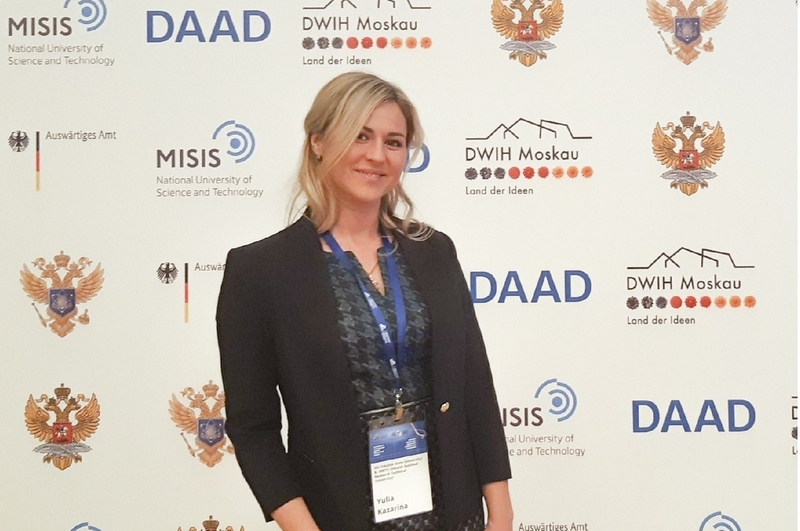The International Day of Women and Girls in Science - one of the new holidays of the UN, which reminds about the contribution of women to research and about equality in science. The holiday is celebrated annually on February 11. Irkutsk State University has also great deal with this day since its female scientists and young researchers play an important role in the advance of science.
The decision of the UN General Assembly to celebrate this day was aimed to fight gender stereotypes and to ensure full and equal access to science for women. UN General Secretary Antonio Guterres in his message mentioned that stereotypes about women's abilities should be eliminated and work culture in relation to the female population of the planet should undergo tremendous changes to provide women full access to education, otherwise the world will miss the great amount of specialists from different fields of science.
Alexander Schmidt, acting rector of ISU:
- The proportion of the women in science is very large, and I am sure that this is the most important factor determining the development of scientific research also in our university. There are many female scientists among the heads of departments of Irkutsk State University, laboratories, and research projects.
When did they decided to dedicate they life to science and how did their journey begin? Female scientists at ISU such as Doctor of sciences (History) Irina Dameshchek answered these and some other questions. Today she is professor of the Department of History and Methodology of the Pedagogical Institute of ISU, member of the dissertation council at ISU but her scientific career began after graduating from the Department of History at ISU, when she decided to enter graduate school:
- It happened naturally since both of my parents were teachers in our university. My mom, Candidate of sciences (physics and mathematics), gave 40 years of her life to teaching. My dad, Doctor of Sciences (History), is a professor and the Head of the Department of Russian History. That all makes me a successor of our teaching dynasty. Even according to the sign of the zodiac, teaching is mine, because Aquarius "pours water into the mill of knowledge"
However, according to Irina Dameshek, a serious approach to science only comes with doctoral studies:
- Doctoral studies is just a different kind of job: it is long trips to work in faraway archives, huge boxes of collected unique material, which are always not enough. The main task is analysis, data processing. I got my PhD when I was 33 but I still remember that day as if it was yesterday. That day I realized that a result cannot be achieved without falling as well as experience cannot be gained without mistakes. This requires to work regularly, not only when you have a right mood.
Professor of ISU, Doctor of Sciences (Chemistry) Nadezhda Vitkovskaya told us a story of her scientific activities. For recent 6 years, she has been the Head of the Laboratory of Quantum Chemistry but in total, she has spent 46 years teaching and learning at ISU:
- All this time I have been doing quantum chemistry, every year we prepare and defend undergraduate and graduate works with students. I have prepared 2 doctors of sciences (chemistry) and 14 candidates of sciences (Chemistry). In 2020 we have received solid support from the Russian Ministry of Science and Higher Education to establish a new laboratory for quantum chemical modeling of molecular systems.
However, science is not only research, complex terms and treatises on previously unexplored. It also includes interactions with people to achieve the necessary results. Doctor of Psychology Olga Artemyeva, Associate Professor believes that it is very important for a scientist to have a range of scientific contacts such as personal participation in conferences, work in the dissertation council, cooperation with scientific journals and active membership in international scientific societies. It helps Olga Artemyeva to be always in touch with scientific relevant issues and to find reasonable solutions for them. Professor told us the way she has found her own science style:
- The main requirement to achieve success in science is to belong to a world-class scientific school. As for me, such a school was the laboratory of the history of psychology and historical psychology of the Institute of Psychology of the RAS. The work under the guidance of its head Vera Alexandrovna Koltsova helped me develop my own style of scientific activity and sharpen my instinct for urgent problems and promising methods of scientific research.
















